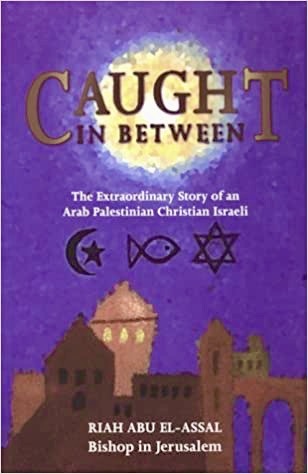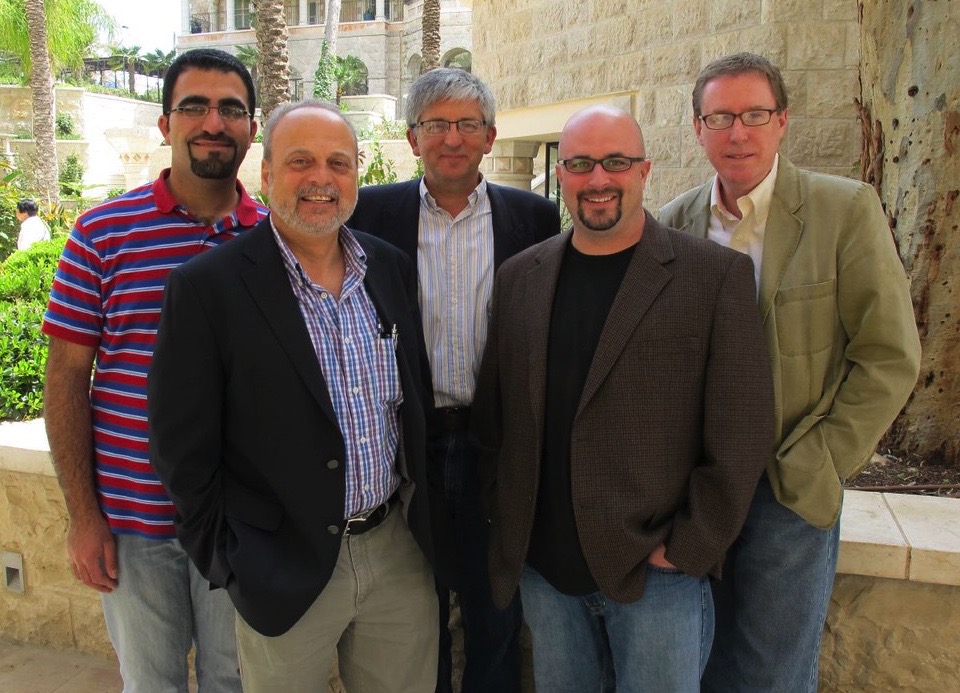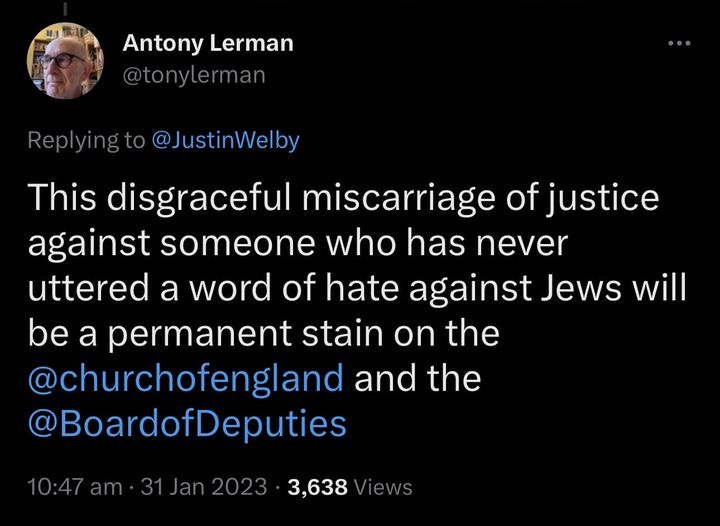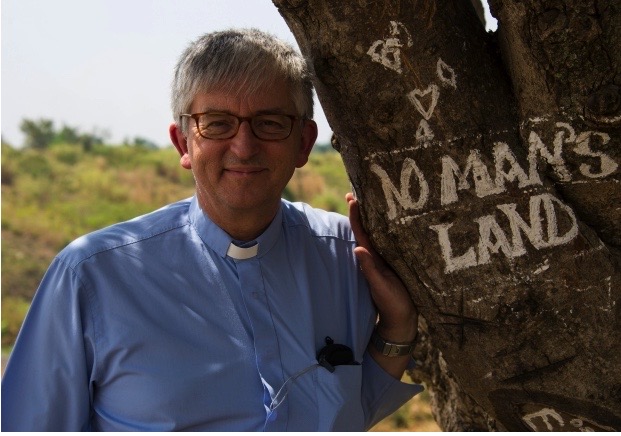 The following letters have been published in the Spectator in response to a libelous article by Melanie Phillips Beware the New Axis of Evangelicals and Islamists
The following letters have been published in the Spectator in response to a libelous article by Melanie Phillips Beware the New Axis of Evangelicals and Islamists
………………………………………………………………………………………………………………………………………………………..
Sir: Melanie Phillips’s article (‘Beware the new axis of evangelicals and Islamists’, 7 March) contains untruthful statements about me. I have never said that I wish Israel, in her words, ‘to be destroyed’ or to ‘disappear just as did the apartheid regime in South Africa’. I have never believed this and categorically reject any position that threatens the integrity of Israel as a sovereign nation. I have, however, spoken out against Holocaust denial as well as religious extremism. Far from seeking to ‘appease radical Islam’, I have criticised Islamist attacks against Christians in Iraq, as well as in Afghanistan. I have never knowingly, to use her words, ‘given interviews to, endorsed or forwarded material from American white supremacists and Holocaust deniers’. My publishers in the USA, InterVarsity Press, occasionally arrange interviews for me. I trust their judgment.
I do wish to see the present illegal occupation of Gaza, the Golan Heights and the West Bank brought to an end, but only as a consequence of the peaceful implementation of all relevant UN resolutions, the road map to peace previously agreed by the US, EU, Russia and UN in April 2003, the Annapolis Agreement of November 2007 and Quartet Statement of December 2008.
What saddened me most, however, about Melanie Phillips’s article were her concluding remarks criticising the archbishops and bishops of the Church of England. I have been a Christian minister for just short of 30 years but have yet to meet a priest, let alone a bishop or archbishop, who displays ‘extreme hostility towards Israel’ or who wishes to ‘accommodate and appease’ Islam.
Stephen Sizer
Christ Church, Virginia Water, Surrey
…………………………………………………………………………………………………………………………………………………….
Sir: I did not, as Melanie Phillips claims, ‘rubbish’ anyone in my review of Global Jihad. I offered a measured but critical response to Dr Sookhdeo’s analysis of Islam and terrorism.
Phillips claims I justify Palestinian terrorism, but provides no evidence. In addition, citing a 2002 article of mine on contemporary anti-Semitism, she omits to mention that right after the part she quotes, I also describe how ‘European culture has a history of anti-Semitism’ partly rooted in ‘the shameful teachings of many in the Church’.
It is a shame if there cannot be disagreement on important issues without recourse to slurs and disingenuously selective quotations.
Ben White
Sao Paulo, Brazil
………………………………………………………………………………………………………………………………………………………
Sir: Melanie Phillips accuses me of insinuating that the Jews were ‘people who are instructed by their religion to be violent, treacherous and imperialist’. This would, if I had said or meant it, be a thoroughly disgraceful piece of anti-Semitism. But anyone who reads my piece will see that it was actually a paraphrase of Dr Sookhdeo’s attitude to Muslims.
Andrew Brown
Editor, Belief, the Guardian, London N1
………………………………………………………………………………………………………………………………………………………
Phillips and the facts
Sir: Melanie Phillips (‘Beware the new axis of evangelicals and Islamists’, 7 March) states that I was present at the meeting last July, at All Nations Christian College, Ware, Hertfordshire, organised by Global Connections and the group Christian Responses to Islam in Britain. I was not there. Facts are sacred in journalism. This is one of many inaccuracies in the article, which were mentioned in letters last week. Global Connections and Christian Responses to Islam in Britain are to be commended for their sensitive work.
Graham Kings
St Mary’s Church, Islington, London N1
……………………………………………………………………………………………………………………………………………………….
Smear by association
Sir: Melanie Phillips was so anxious to vent her wrath against Revd Stephen Sizer (‘Beware the new axis of evangelicals and Islamists’, 7 March) for his role in persuading the Church of England to divest itself of shares in Caterpillar, the American company which makes the armoured bulldozers used by Israel to flatten Palestinian villagers’ homes and uproot their olive groves, that she presented misinformation about me in order to perpetrate a smear by association against Sizer. The fact that Sizer’s email bulletins sometimes land in my inbox is no basis for suggesting that he and I are of the same mind.
Sizer approaches the plight of Palestine from his position as a Christian who, it seems to me, has an internationalist and non-racialist outlook. I am a religiously agnostic British Nationalist and racialist who recognises that the Palestinians, since 1948, have faced an invasion of their homeland by aliens who have set about expropriating Palestine for themselves. I see similarities between what has happened to the Palestinians since 1948 and what has happened to the indigenous British people over the same period.
The National Front — at least while I was involved with it from 1969 to 1983 — was not ‘neo-Nazi’. It was a nationalist party with a fully democratic constitution at every level. There were self-proclaimed neo-Nazi groups around at that time, but they were formally proscribed by the NF. All this is fully on record, including in various High Court proceedings. Phillips was also wrong to describe me as ‘the former leader’ of the NF. I served as its National Activities Organiser under a number of leaders.
Martin Webster
Via email
………………………………………………………………………………………………………………………………………………………..
For a longer response to Melanie’s article see here.
For the reply from the Church of England see here.
For an insight on Melanie’s political views see Wikipedia, that bastion of objectivity and truth, especially her views on Israel.
For the perspective of a Jewish Israeli see Jeff Halper here










 With the leaking, last month, of the names, addresses and occupations of the 12,000 members of the British National Party (BNP), media attention, such as the
With the leaking, last month, of the names, addresses and occupations of the 12,000 members of the British National Party (BNP), media attention, such as the